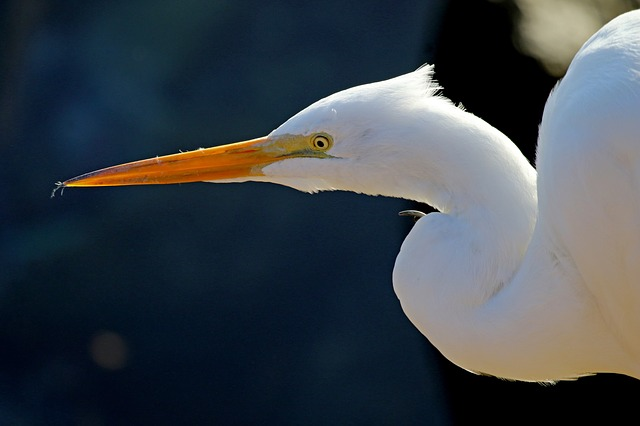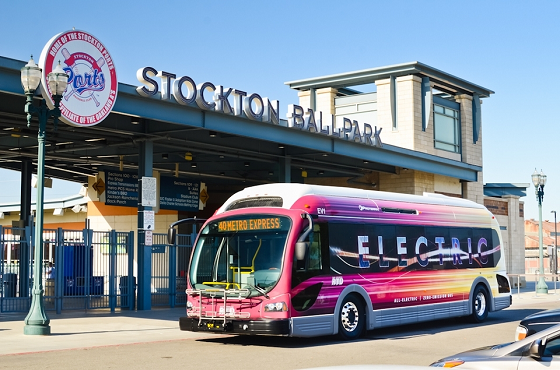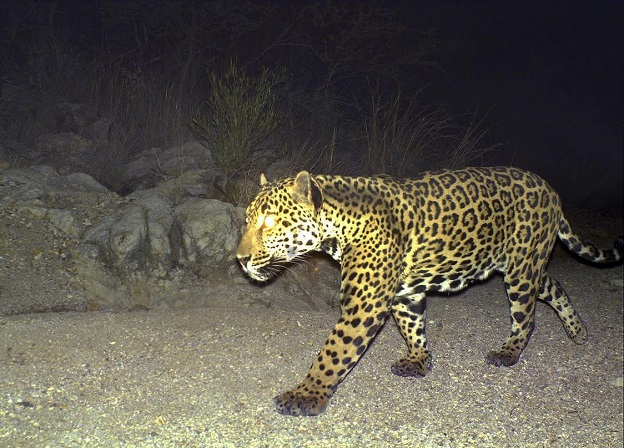
California Resistance Summit Approaching
Water Board Moves to Stop the Destruction of Wetlands
Pollution-Free Buses are Increasing Statewide
Wild Animals and Border Walls Don't Mix
Call for Nominations for the 2017 Sierra Club California/Nevada Leadership Awards

California Resistance Summit Approaching
By Meg Gunderson
Photo Credit: Joshua Bell
Get your resistance on!
This year’s annual summit, focused on the California resistance, is coming up in just two months—October 27th to the 29th. Register here now.
You’ll have the opportunity to get together with Sierra Club environmentalists from around the state to hear from experts and thinkers. And share your own stories of organizing and resistance in a rustic camp in the foothills of San Luis Obispo.
This year’s keynote speaker on Saturday morning will be Jim Araby, executive director of the Western States Council of the United Food and Commercial Workers.
Araby is widely considered to be a bold and effective political thinker in California. He will share his thoughts about organizing and expanding progressive political power in California in the Trump era.
On Saturday afternoon, during the workshop period, nationally known and celebrated storyteller Olga Loya will lead workshops designed to help participants effectively communicate about the environment, about environmental issues, and about why others should be involved.
And everyone will have an opportunity to hear stories and practice storytelling skills at a campfire Saturday evening after dinner.
Also leading Saturday workshops will be Sierra Club’s Director of Strategic Partnerships, and community organizer extraordinaire, Hop Hopkins. Hop will lead sessions on effective ways to draw, engage, retain and organize volunteers to build a stronger movement.
The summit takes place in San Luis Obispo County at the Rancho El Chorro park and public meeting facility. You can find more details, including how to register, here.
Every Sierra Club member is welcome to attend, and admission is low. The entire weekend, including rustic lodging in a bunkhouse-style cabin or pitching your own tent, from Friday evening through Sunday morning, costs just $70. Pizza on Friday evening, lunch and dinner on Saturday and breakfast on Sunday are included.
If you attend for just one day, the fee is $35.
Nobody is turned away from the meeting due to lack of funds, and some scholarships are available. But space is limited, so sign up now.
For information on scholarships, contact Meg Gunderson.

Water Board Moves to Stop the Destruction of Wetlands
By Kyle Jones
One of the first actions taken by President Donald Trump when he took office was to repeal the federal "Waters of the United States" Rule. This Obama-era regulation sought to broadly define federal jurisdiction of waters to cover and protect more wetlands.
In the face of this federal retreat, California has yet another chance to lead.
While the President has shown he’d rather allow developers and industry to destroy wetlands, the State Water Resources Control Board (Water Board) is moving in a direction designed to protect wetlands.
The Water Board has been focusing for 10 years on better defining what wetlands deserve protection, and what that protection is, culminating in a new Wetlands Rule.
Protecting and restoring California’s wetlands should be a priority because of the major role they play in ecosystem health. For instance, wetlands filter water, removing sediment and other pollutants, which improves water quality. Coastal wetlands provide a buffer from storm surge and control erosion, both of which will help address sea level rise from climate change. Wetlands provide important habitat for migratory birds and numerous other fish, reptiles, and amphibians that are found only in California.
Sadly, California has lost over 90% of its historic wetlands.
State jurisdiction over waters and wetlands is much broader than federal law, thus giving the Water Board clearer authority to do what’s necessary to prevent the loss of further wetlands, and restore some of what we’ve already lost.
This proposed Wetlands Rule makes it clear when a wetland is subject to state protections. It clearly states that we should not lose any more wetlands, and sets up procedures that prioritize avoiding damage to wetlands when development occurs.
Sierra Club California volunteers, led by Arthur Feinstein, have followed this rule closely to make sure the environment has had a voice in its development. Now we are working to make sure the rule crosses the finish line and is adopted by the Water Board this year.
If you would like to help, send the Water Board an email explaining that you support wetlands and why. Comments can be sent to commentletters@waterboards.ca.gov with the subject line “Statewide Dredged of Fill Procedures” by September 18th.
Industry opponents of the new rule are gearing up to fight the adoption of this rule, but Sierra Club California staff and volunteers and our allies will be working to improve the rule and get our wetlands the protections they deserve.

Pollution-Free Buses Increasing Statewide
By Kathryn Phillips
Zero-emission bus service may be coming to your community soon.
This year is proving to be a big, successful one for advancing non-polluting transit.
In July, the board of the Los Angeles County Metropolitan Regional Transportation Authority, the main transit system in the L.A. region, voted to buy 95 new zero-emission buses. It also set a goal of having a 100% zero-emission fleet by 2030.
The L.A. Metro fleet contains about 2,200 buses and is one of the largest transit bus fleets in the state.
This move toward zero-emission buses in L.A. was driven by a coalition that included Sierra Club California volunteers and staff, Sierra Club national volunteers and staff, Angeles Chapter volunteers, and a number of allied groups.
Just a few weeks later, in Northern California, the San Joaquin Regional Transit District board voted to convert all of its transit service in Stockton, its home city, to 100% zero-emission by 2025. The transit district also announced that it would be converting a bus rapid transit (BRT) route to 100% zero-emission electric buses this month, making it the first all-electric BRT route in the nation.
Now local chapter volunteers and allies, working with lead volunteer Ray Pingle, are zeroing in on persuading two other Southern California transit agencies to set goals to shift to zero-emission buses.
And at the state level, Ray and Sierra Club California staff are working with a coalition that includes labor, environmental, environmental justice and health groups to press for the California Air Resources Board to develop a rule that would make sure transit agencies around the state are moving toward zero-emission bus fleets.
Already, at least 39 transit agencies in the state include zero-emission buses among their fleet. Most of the buses are plug-in electric, but some are also hydrogen fuel-cell electric.
The recent acceleration in zero-emission bus adoption has been driven by a few things:
· The technology has advanced to allow battery-charged buses to go farther on a single charge.
· Costs have dropped so that plug-in electric buses are competitive over their life with the costs of purchase and operation of fossil-fueled buses.
· Companies that manufacture the buses have set up facilities in California, providing good jobs as they provide the technology to help cut air pollution from fossil fuels and bus operation. The companies include BYD, Proterra, Motiv, and Gillig, among others.
· Incentive dollars from the state have helped encourage local transit agencies to try a new technology. Once they try, the agencies become sold on the ease of fueling and operation and the cleanliness of zero-emission buses.
In addition to providing immediate clean air benefits to local communities, the zero-emission buses on the road today are also helping test and improve battery technology.
Zero-emission buses still face some opposition. That opposition is especially driven by the natural gas industry, which has had a lock on bus technology in recent years.
As the need to move away from fossil fuels becomes more urgent, the natural gas industry—whose product is a serious climate-forcing pollutant and also creates local air pollution—has become more aggressive about trying to stop the move toward zero-emission buses and trucks. In the last few years, that industry has proposed bills at the legislature that have been designed to grab for natural gas vehicles incentive funds intended for zero-emission bus and truck purchases.
If you would like to see zero-emission buses come to your community and be part of the team of volunteers working to clean up the bus fleet, fill out a volunteer form on our website. Be sure to note that you want to help on zero-emission buses.

Wild Animals and Border Walls Don't Mix
The Trump administration is bulldozing ahead with its plans for a destructive and ineffective border wall.
There are already barriers along hundreds of miles of the U.S.-Mexico border, and they have been an environmental and human rights disaster, with little demonstrated benefit to national security.
Your next issue of Sierra magazine includes a postage-paid postcard calling on our US Senators not to appropriate any money to the border wall. Please sign it, drop it in the mail, and we’ll deliver to Congress. You can also take action here to stop any funding for the border wall.
Call for Nominations for the 2017 Sierra Club California/Nevada Leadership Awards
This is a great time to recognize those who have been leaders and who continue to put forth the effort and the moxie to help the Club continue our fights in the current era.
Follow Us:
  |
Thank you for being a part of our work! Consider making it monthly. You may securely donate online or by sending a check to Sierra Club California at 909 12th Street, Suite 202, Sacramento, CA 95814.
